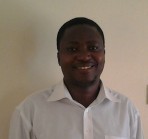Secretariat

Regional Coordinator
Prospery C. Simpemba
Email: pcs200800@gmail.com
Mobile: +260977704168
Administrative Office
Jackson Siantuba
Email: siantuba@gmail.com
Mobile: +260 974 691 439
STEERING COMMITTEE
- Prof. Kakoma Maseka – Chairman -Copperbelt University
- Mr. Gift Sichone- Co-Chairman -University of Zambia
- Mr. Kevin Govender – Director for Office of Astronomy for Development
- Mr. Takalani Nemaungani – Director Department of Science and Innovation – Multi-wavelength Astronomy
- Mr. Mwenya Mulenga – Ministry of Higher Education, Zamba
- Dr. Daniel Cunnama – South African Astronomical Observatory
- Prof. Michael Backes – University of Namibia
- Prof. Jamal Mimouni – African Astronomical Society
COUNTRY COORDINATORS
Each country node shall be headed by a Country Coordinator. This position shall be voluntary or enumerated depending on prevailing situation in each country and will be supervised by the RC. The present Country Coordinators are:
- Bernard M’mame, Malawi
- Golden Gadzirai Nyambuya, Zimbabwe
- Michael Backes, Namibia
- Paulo Claudio, Mozambique
- Nana Ama Klutse, Ghana
- Nadeem Oozer, Mauritius
- Mika Harisetry Rafieferantsoa, Madagascar
- Sivuyile Manxosa, South Africa
- Nchimunya Mwinga, Zambia
- Tebogo Magaleemang, Botswana
- Geoffrey Okengo, Kenya
- Guy Leba Kabongo, Democratic Republic of Congo
PROFILES
NAMIBIA: Dr. Michael Backes
During his post-graduate studies at TU Dortmund University, Michael Backes spend study visits at the Ruhr-University Bochum (D) in 2005 and the University of Birmingham (UK) in 2006 to attend astrophysics classes. He conducted the research for his Diplom Thesis (equiv. M.Sc.; 2008) and his Dr. rer. nat. (equiv. Ph.D.; 2012) in the Astroparticle Physics Group at TU Dortmund University. There he held the positions of a Graduate Teaching Assistant (2006-2008), Research Assistant (2008-2010) and, later, as Research Associate (2012-2013). His Ph.D. thesis focused on the investigation of emission properties of a specific Active Galactic Nucleus, employing gamma-ray and multi-wavelength observations.
Meanwhile, he was an active member of the FACT (First g-Apd Cherenkov Telescope) and MAGIC (Major Atmospheric Gamma-ray Imaging Cherenkov telescopes) collaborations. The FACT collaboration successfully set up the world’s first Imaging Atmospheric Cherenkov Telescope (IACT) utilizing a camera based on semi-conductor light sensors, dubbed G-APDs. The MAGIC collaboration operated a twin-system of the world’s largest IACTs at that time and made enormous discoveries like the first detection of very high energy gamma-rays from a pulsar and from an extremely distant active galaxy (both published in Science).
Additionally, he was strongly engaged in the Collaborative Research Center SFB 876: “Providing Information by Resource Constrained Data Analysis”, an interdisciplinary research centre on data analysis. In that context he worked with statisticians and computer scientists on both, periodicity detection in unevenly sampled data and on an optimal signal/background separation for gamma-ray astronomy.
In 2013, he joined the University of Namibia as Lecturer and conducts gamma-ray astronomy with H.E.S.S., the world-leading IACT system, and the planning of the next generation IACT project, the Cherenkov Telescope Array (CTA). He got appointed as the group leader of the Namibian H.E.S.S. group and since promotion in 2016, Dr Backes is employed as Senior Lecturer in the Department of Physics at the University of Namibia.
Since 2011, he has been an elected a Fellow of the Royal Astronomical Society and since 2015 he is also individual member of the International Astronomical Union.
MAURITIUS: Dr. Nadeem Oozer
Nadeem Oozeer grew up on one of the beautiful African islands, Mauritius. He began his journey of discovery in 1998 with a BSc. (Hon.) in Physics. His degree paved the way to a Masters thesis focusing on the deconvolution techniques of radio images from the Mauritius radio Telescope. Tuned to the radio wavelength, he pursued a PhD looking at multi-frequency observations of extragalactic radio sources. Aside from his research he also felt a strong push to share his knowledge with the community around him and uplift the state of STEM education. This drive lead to several teaching positions in Physics, Mathematics and Computational Science at various secondary schools as well as the University of Mauritius. In 2009 he was awarded an SKA fellowship to pursue a postdoc at the Harthebeesthoek Radio Observatory (HartRAO) which lead him to his current position as Commissioning Scientist for the SKA SA, as of March 2011. Dr Oozeer continued his scientific involvement with the public through the Human Capacity Development (HCD) programme of SKA SA. He has been awarded various grants to expand teaching and research in radio astronomy via the Joint Exchange Development Initiative (JEDI). His field of interests include multi-wavelength extragalactic astronomy, Active Galaxies, Galaxy Clusters, Machine Learning, Education and Public Outreach (EPO) in Africa and transformational HCD. When he is not pondering and sharing the mysteries of the cosmos, he enjoys outdoor activities such as hiking, fishing or playing football, as well as occasionally jumping on a plane to discover the world with his son, exploring new cultures, meeting new people and experiencing new food.

Leave a Reply
You must be logged in to post a comment.